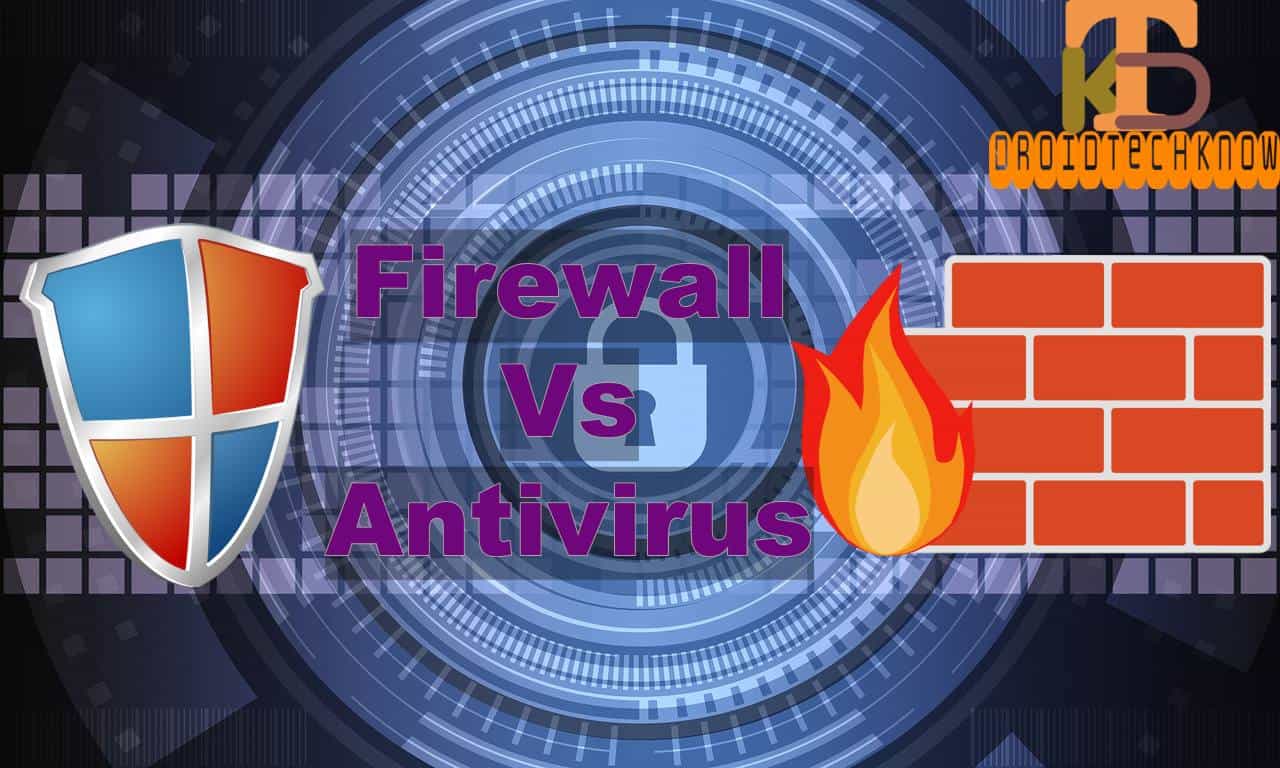In today’s digital landscape, connecting to the internet without protection is like leaving your front door wide open. We’ve all heard stories, or perhaps even experienced firsthand, the frustration and financial burden of a virus attack or data breach.
But what exactly stands between you and these digital threats? The answer lies primarily in two crucial defenses: antivirus software and firewalls. These aren’t just technical buzzwords; they’re essential tools for safeguarding your personal information, valuable data, and overall digital security.
This article will delve into the world of antivirus and firewalls, explaining how they work, why you need both, and how to choose the right solutions for your specific needs. Get ready to understand the vital role these protectors play in keeping you safe online and empowering you to navigate the digital world with confidence.
Antivirus and Firewall: Your Digital Shield Explained
In today’s interconnected world, safeguarding your digital existence is crucial. Two key components of this protection are antivirus software and firewalls. They operate distinctively, but when combined, they form a powerful defense against cyber threats.
Think of your computer as a house. Antivirus is like a security guard patrolling the inside, while the firewall acts as the front gate, carefully checking who gets access.
This article will explore how these two essential tools collaborate to keep your data secure. We’ll delve into their specific roles, strengths, and how to utilize them effectively.
Understanding their function is the first step towards building a robust security posture. Stay tuned as we demystify these technological sentinels, arming you with the insights needed to protect your digital domain.
Understanding Antivirus Software
Antivirus software is designed to detect, neutralize, and eliminate malicious programs like viruses, worms, and Trojans. It works by scanning files and programs for known malware signatures.
Beyond simple signature matching, many advanced antivirus solutions now employ behavioral analysis. This technique monitors software actions to identify suspicious behavior that may indicate new or unknown threats.
Consider it a digital immune system. It constantly adapts and learns to combat emerging infections. Keeping your antivirus software updated is critical to ensure it’s equipped to handle the newest threats.
Regular scans are also essential. Schedule them to run automatically during times when your computer is idle, ensuring continuous protection without impacting performance. Consider scanning external drives too.
Antivirus programs are an important layer of defense against malware and malicious software. They provide continuous real time protection against emerging digital threats.
Dissecting Firewall Technology

A firewall acts as a barrier between your computer or network and the outside world. It examines incoming and outgoing network traffic, blocking any that doesn’t meet pre-defined security rules.
Firewalls operate by filtering data packets, scrutinizing their source, destination, and content. This filtering process prevents unauthorized access and malicious data from entering your system.
Think of it as a bouncer at a club, only allowing those on the guest list to enter. Firewalls can be hardware-based, software-based, or a combination of both, providing multiple layers of security.
Configuring your firewall properly is vital. Define clear rules for allowed traffic and block any unnecessary ports or services. Many operating systems include built-in firewalls, make sure yours is enabled.
Firewalls are an important layer of security, helping to block suspicious connections. Without a firewall, you would be leaving your system vulnerable to attacks.
Antivirus vs. Firewall: Key Differences
While both contribute to overall security, they operate in different realms. Antivirus focuses on identifying and removing malicious software already present on your system. It cleans up inside.
A firewall, conversely, works at the network perimeter. It controls traffic flowing into and out of your system, preventing threats from entering in the first place. It stands guard outside.
Antivirus reacts to threats that have already breached your defenses. The firewall aims to prevent those breaches from happening in the first place. It is a preventative measure.
One focuses on cleaning up the mess, while the other focuses on preventing the mess from occurring. It’s a synergistic partnership, maximizing your security coverage.
While these programs are different, the function to protect your system from threats. Both antivirus and firewalls are important parts of any security system.
Why You Need Both: A Layered Approach
Relying solely on either antivirus or a firewall leaves you vulnerable. A layered approach, combining both, provides a more robust and comprehensive security posture. Defense in depth!
Imagine relying only on the security guard without a front gate. Or, vice-versa. A skilled attacker might still find a way to infiltrate your system. Multiple layers make it far more difficult.
A firewall can prevent many threats from reaching your computer, but some might slip through. The antivirus then acts as a second line of defense, catching anything the firewall misses.
This layered approach significantly reduces your risk of infection and data breach. The overlapping coverage offers a more resilient and reliable defense. It’s like wearing a belt and suspenders!
Using a layered approach with a firewall and antivirus is the best way to maintain a safe system. Protect yourself with a layered defense that is hard to penetrate.
Choosing the Right Security Tools
Selecting the right antivirus and firewall solutions depends on your needs and budget. There are numerous options available, ranging from free software to comprehensive commercial suites.
Consider factors like the size of your network, the sensitivity of your data, and your technical expertise. Read reviews and compare features before making a decision. Look for independent testing results.
Free antivirus software can provide basic protection, but often lacks advanced features and support. Paid solutions typically offer more comprehensive protection, better performance, and dedicated customer support.
For firewalls, evaluate whether a hardware-based or software-based solution is more suitable. Hardware firewalls are typically more robust and suitable for larger networks, while software firewalls are easier to configure for individual computers.
Assess your overall security needs and budget to make a good choice. Take the time to choose the right program to protect your system and your data.